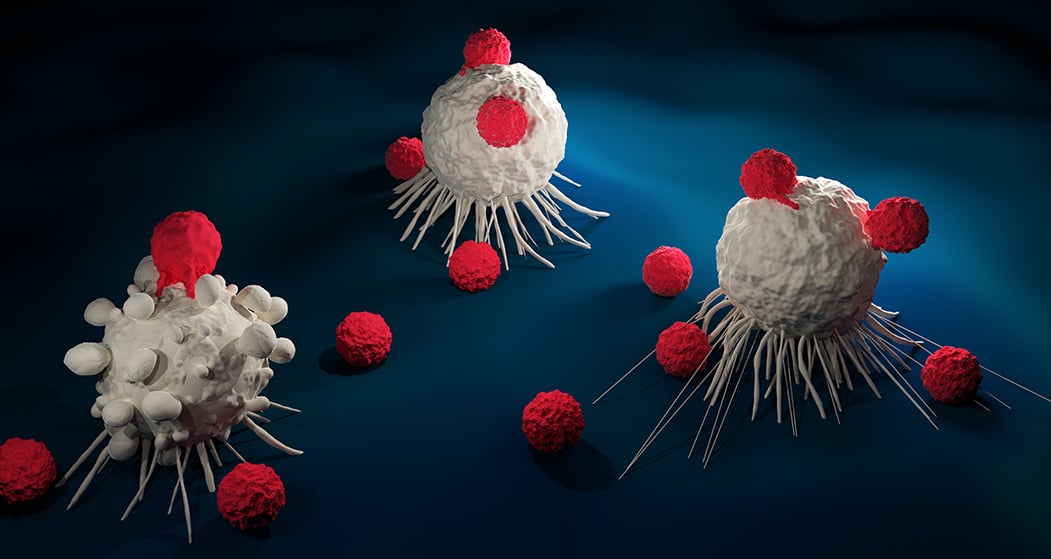Cell therapy has emerged as a promising approach in the field of cancer treatment, and chimeric antigen receptor (CAR) T-cell therapy has shown extraordinary potential in harnessing the patient's immune system to combat solid and hematologic tumors. However, before this revolutionary therapy can be applied in the clinical setting, extensive preclinical evaluation is imperative to ensure its safety, efficacy, and reliability. In this blog article, we will look into the significance of preclinical evaluation in CAR T-cell therapy, shedding light on the pivotal role of fluorescent-based counting methods to evaluate CAR T-cell function in various tumor types.
Understanding the Basics of CAR T-cell Therapy
CAR T-cell therapy involves genetically modifying a patient's own T-cells to express chimeric antigen receptors, enabling them to recognize and target specific antigens found on tumor cells. This innovative approach has shown remarkable success in challenging hematologic malignancies, such as acute lymphoblastic leukemia (ALL) and B-cell lymphomas, leading to robust clinical results and even regulatory approvals. Nonetheless, translating the success of CAR T-cell therapy to solid tumors is a complex task, necessitating meticulous preclinical evaluations.
Preclinical Evaluation: A Crucial Step in CAR T-cell Therapy Development
Before CAR T-cell therapy is tested in clinical trials, preclinical evaluation serves as a crucial step to guide its design, assess potential toxicities, and optimize therapeutic outcomes. This preclinical phase involves thorough laboratory investigations and animal studies to address critical aspects, including CAR T-cell persistence, trafficking, and targeting efficacy. By comprehensively evaluating CAR T-cell function in the preclinical setting, researchers can identify potential obstacles and refine treatment strategies, ultimately enhancing patient safety and therapeutic success.
Fluorescent-Based Counting Methods: Illuminating the Path towards CAR T-cell Evaluation
To precisely determine the CAR T-cell function in preclinical studies, employing accurate and reliable techniques for cell quantification is paramount. Fluorescent-based counting methods offer a sophisticated toolset for evaluating the behavior and function of CAR T-cells in different tumor models. These techniques entail fluorescent labeling of CAR T-cells, allowing researchers to track the cells' migration, proliferation, and persistence within the tumor microenvironment. With the aid of fluorescent-based counting methods, researchers can quantify CAR T-cell infiltration, tumor eradication, and their impact on tumor regression, providing invaluable insights before translating the therapy to clinical trials.
Evaluating Solid and Hematologic Tumors for CAR T-cell Therapy
Preclinical evaluation encompasses the assessment of CAR T-cell therapy in diverse tumor types, including solid and hematologic malignancies. While the success of CAR T-cell therapy in hematologic tumors is established, addressing solid tumors poses inherent challenges due to the tumor microenvironment's complexity, immunosuppression, and antigen heterogeneity. Therefore, comprehensive preclinical evaluations are indispensable to comprehend the intricate interplay between CAR T-cells and solid tumor-associated factors, such as the tumor stroma, immune checkpoints, and hypoxia.
Conclusion
The journey of CAR T-cell therapy from preclinical evaluation to clinical translation demands meticulous investigations and robust assessments. Preclinical evaluation serves as a crucial stage in determining the safety and efficacy of CAR T-cell therapy in combating solid and hematologic tumors. With the aid of fluorescent-based counting methods, researchers can comprehensively evaluate CAR T-cell function, supporting the optimization of treatment strategies and the realization of effective therapeutic outcomes. By unraveling the complexities of preclinical evaluation, we inch closer to revolutionizing cancer therapy with CAR T-cells.



